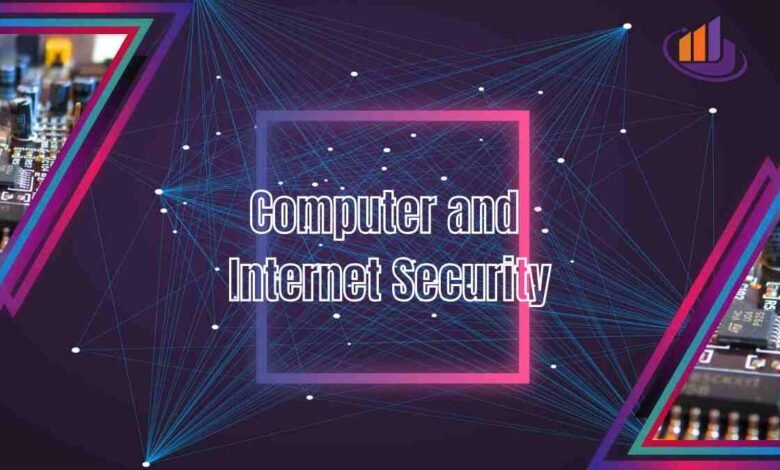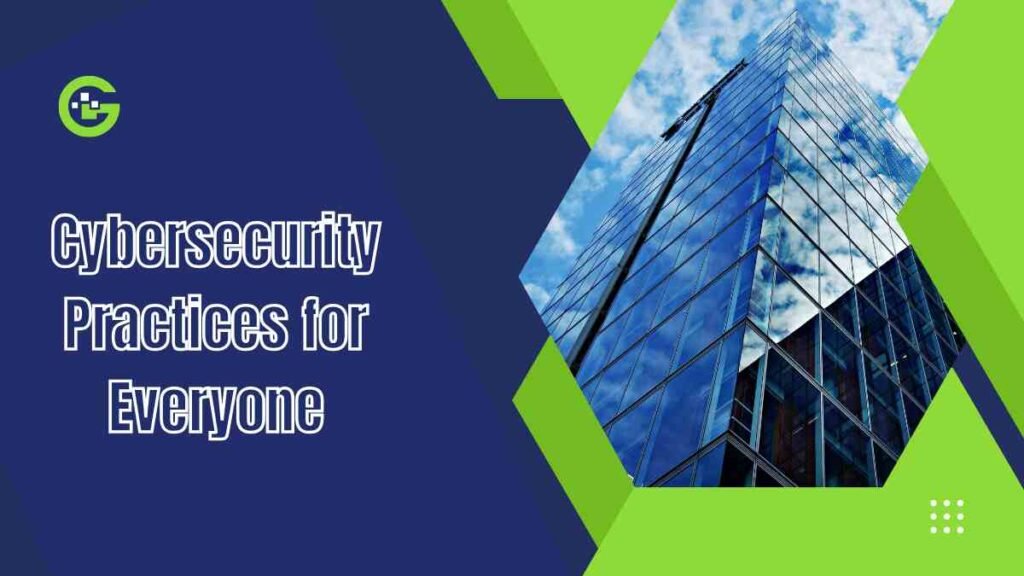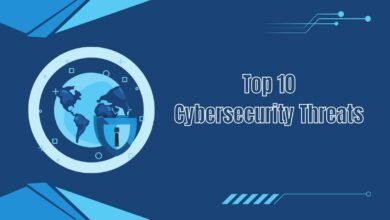Computer and Internet Security: How to Prevent Hacking

Computer and internet security are more critical than ever. With so much of our personal, professional, and financial information online, the potential for cyber threats is high. The good news? By understanding the fundamentals of cybersecurity and following best practices, we can better protect ourselves from these risks. This article dives into key aspects of computer and internet security, offering insights and actionable steps to keep your digital presence safe.
Understanding Computer and Internet Security
Computer and internet security, also known as cybersecurity, involves protecting digital devices, networks, and data from unauthorized access, damage, or theft. With rising cyber threats like malware, phishing, and data breaches, ensuring security is essential for both individuals and organizations. Effective cybersecurity doesn’t just happen—it requires a combination of good practices, vigilance, and the right tools.
Why is Cybersecurity Important?
The internet is integral to our daily lives, powering everything from online banking to social media interactions. However, this convenience also opens the door for cybercriminals who exploit vulnerabilities to gain unauthorized access to sensitive data. Cybersecurity is crucial to protect personal and financial information, maintain privacy, and prevent disruptions caused by cyberattacks. Without robust security, individuals and companies are at risk of substantial financial loss, reputational damage, and legal consequences.
Cybersecurity Practices for Everyone

Following cybersecurity best practices helps minimize exposure to cyber threats. Here are some essential tips for protecting your online presence.
Must Visit: Well Wave
Use Strong Passwords
Strong, unique passwords for each account are the first line of defense. Avoid easily guessable passwords and consider using a reputable password manager to keep track.
Enable Two-Factor Authentication (2FA)
2FA adds an extra layer of security by requiring a second verification step, making it more challenging for hackers to access accounts even if they have your password.
Regularly Update Software
Keeping software and operating systems up-to-date helps patch known vulnerabilities that hackers can exploit. This applies to your computer, mobile devices, and apps.
Be Cautious of Phishing Attacks
Phishing involves deceptive emails or messages designed to trick users into revealing sensitive information.
Limit Public Wi-Fi Usage
Use a Virtual Private Network (VPN) to secure your internet connection when using public networks.
Regularly Back Up Data
Regular data backups protect you from losing essential files in the event of a malware attack or hardware failure. Aim for both cloud and external storage solutions.
Key Defense Against Cyber Threats
Malware, or malicious software, includes viruses, ransomware, spyware, and other harmful programs that can compromise devices and steal data. Malware protection involves identifying, blocking, and removing such threats. Here are some effective steps for malware protection:
Install Antivirus Software
Antivirus software scans for and removes malicious files, providing a vital layer of protection.
Enable Real-Time Scanning
Many antivirus programs offer real-time scanning to detect threats as they arise.
Be Careful with Downloads
Download software and files only from reputable sources to avoid unintentionally installing malware.
Educate Yourself on Common Malware Tactics
Understanding how malware works can help you recognize red flags and avoid traps.
Network Security to Protect Connectivity
Network security is crucial for protecting the integrity and usability of networks and data. Both individuals and businesses need effective network security measures to safeguard information and maintain secure communication channels. Common network security solutions include:
Firewalls
Firewalls act as a barrier between your device and the internet, controlling incoming and outgoing network traffic based on predetermined security rules. They are essential for blocking unauthorized access and preventing potential cyber threats from reaching your devices.
Intrusion Detection Systems (IDS)
Virtual Private Networks (VPNs)
VPNs encrypt data traffic, securing information exchanged over public and private networks. This is especially important for remote workers who access company networks from various locations.
Network Segmentation
Segmenting a network into smaller parts limits the spread of potential cyber threats. Assuming one fragment is compromised, others stay safeguarded.
Data Breach Prevention
Data breaches are among the most damaging cyber incidents, often resulting in the exposure of sensitive information such as financial records, personal data, and intellectual property.
Implement Access Controls
Encrypt Sensitive Data
Encryption transforms data into unreadable code, which can only be decoded with the correct key. This guarantees that regardless of whether information is blocked, it stays secure.
Regular Security Audits
Conducting security audits helps identify vulnerabilities and ensures that current security measures are effective.
Employee Training
Human error is a leading cause of data breaches. Training employees on cybersecurity best practices can prevent mistakes that could lead to breaches.
Firewall and Antivirus Software

Firewall and antivirus software are foundational tools in cybersecurity. Both play different yet complementary roles in keeping devices and data secure.
Firewalls
A firewall monitors incoming and outgoing network traffic, blocking unauthorized access while permitting legitimate communications. It helps create a secure barrier between your device and external networks, making it harder for hackers to access sensitive data.
Antivirus Software
Antivirus software scans your device for malware, removing or isolating infected files. It also provides real-time scanning to catch threats as they appear, stopping potential damage before it spreads. Both firewalls and antivirus programs are essential for anyone serious about maintaining a secure online presence. Together, they provide a dual-layer defense that effectively reduces the risk of cyberattacks.
The Role of Encryption in Cybersecurity
By encoding data, encryption ensures that even if unauthorized individuals gain access, they cannot read the data without the decryption key. Encryption is widely used in email communications, online banking, and cloud storage to secure private information. Advanced encryption algorithms, like AES (Advanced Encryption Standard), provide a high level of security that’s almost impossible to crack. Whether for personal use or business operations, encryption is a vital step in ensuring data integrity and confidentiality.
The Importance of Cybersecurity Awareness
Cybersecurity awareness is crucial for understanding and recognizing potential threats. Awareness programs can educate individuals on best practices, helping them recognize phishing attempts, avoid malware, and respond quickly to suspicious activity. For companies, fostering a culture of cybersecurity can significantly reduce the risk of attacks. Training employees and implementing awareness programs can greatly enhance organizational security.
Conclusion
In an increasingly connected world, computer and internet security are paramount. Understanding and implementing cybersecurity best practices, investing in robust tools like firewalls and antivirus software, and practicing vigilance can go a long way toward safeguarding your digital environment. By taking a proactive approach to cybersecurity, you can protect personal data, prevent cyberattacks, and navigate the online world with greater peace of mind.
Read More: eCommerce SEO Agency



